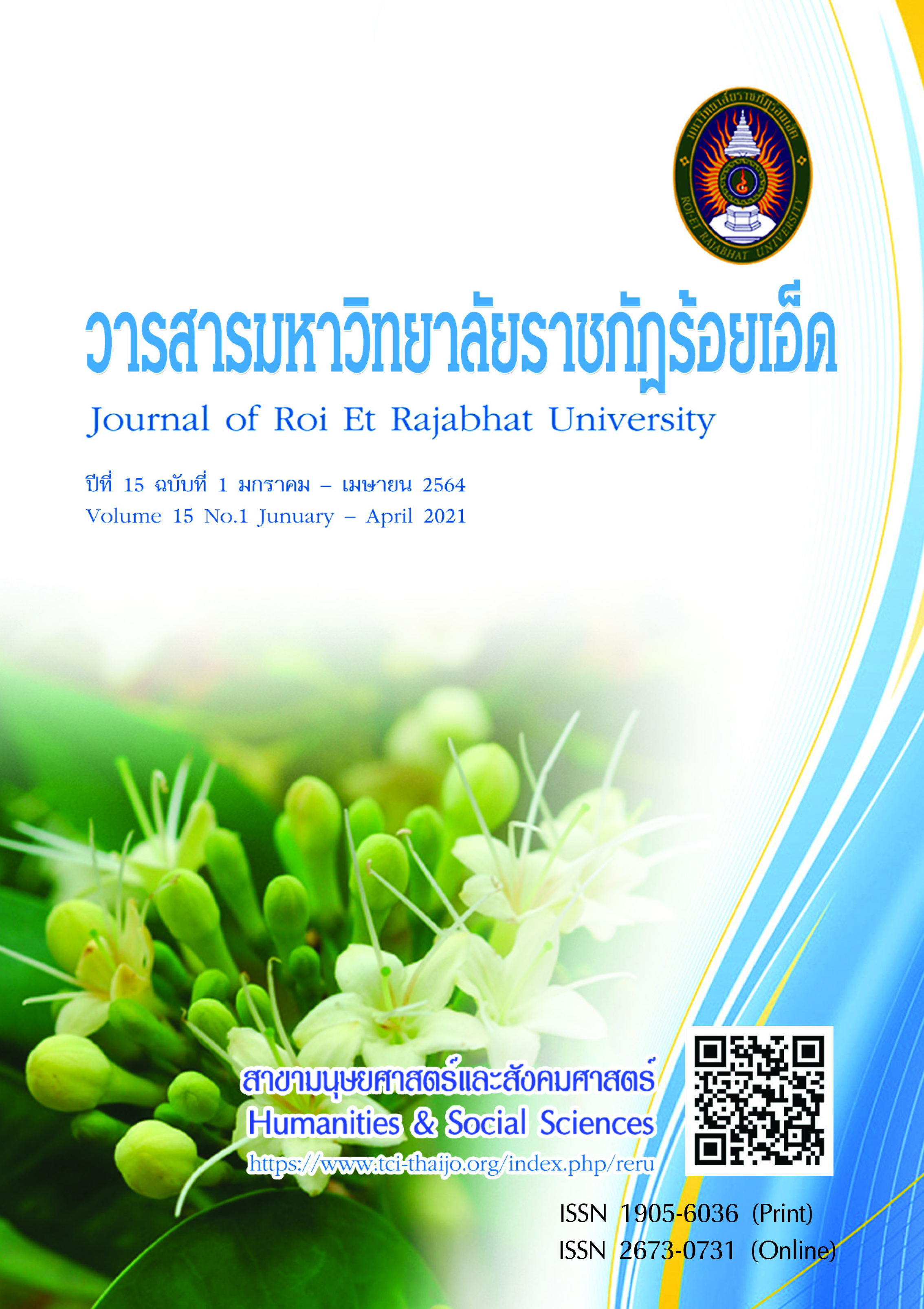An Excellent School Leadership according to the Principles of Sufficiency Economy: A Study to Create Grounded Theory
Keywords:
School leadership, Excellent school according to principles of sufficiency economy, Grounded theoryAbstract
This research aimed to propose a grounded theoretical conclusion on characteristics, conditions, processes, and consequences arising from the excellent school leadership according to the principles of sufficiency economy. The selected area studies were done through theoretical selection methods and consistent with the objectives of the research. The research instruments were document analysis forms, observation forms, in-depth interview forms, and recordings of group discussion. The key informants were stakeholders who are involved in educational management of excellent schools according to principles of sufficiency economy. Analysis of data was done through data interpretation for the purpose of arriving at a concept based on theoretical sensitivity. The Atlas.t7 software program was utilized to organize the gathered data for rearranging. The findings were as follows: 1) The characteristics of excellent school leadership in accordance with the principles of sufficiency economy involved the schools which have performed using participative management, teamwork, distribution of leader and a work culture focusing on four aspects of achieving goals: Qualitative management aspect, Learning aspect, School-based Management and Administrative functions aspects. 2) Condition and process: External condition including 20-year national strategies and national policies, and internal condition involving educational quality assurance and school visions. The school leadership building processes involved three components: Problem solving and decision making, Continuous task refinement and development, and Development and culture-based success. 3) The consequences of school leadership were categorized into six aspects comprising: students having good academic achievement, desirable characteristics, being happy and proud; Teachers having leadership, self-development and team work, adjusting concepts and behaviors, demonstrating morale; School administrators having fame, honor and pride, and having good characteristics; School being well recognized and a good model, having good environment and good learning resources; Community providing participation, having good relationship and sharing; and Society exhibiting unity and giving importance on education and useful knowledge.
References
จตุรงค์ ธนะสีลังกูร. (2554). ภาวะผู้นำสถานศึกษาของผู้อำนวยการโรงเรียน: การศึกษาเพื่อสร้างทฤษฎีฐานราก. ดุษฎีนิพนธ์ ปรัชญาดุษฎีบัณฑิต สาขาวิชาการบริหารการศึกษา. ขอนแก่น: มหาวิทยาลัยขอนแก่น.
จอมพงศ์ มงคลวนิช. (2556). การบริหารองค์การและบุคลากรทางการศึกษา. กรุงเทพฯ: จุฬาลงกรณ์มหาวิทยาลัย.
ชญานี ภัทรวารินทร์. (2556). การพัฒนารูปแบบการบริหารโดยใช้โรงเรียนเป็นฐานของโรงเรียนเอกชน. ดุษฎีนิพนธ์ ปรัชญาดุษฎีบัณฑิต สาขาวิชาการบริหารการศึกษา. กรุงเทพฯ: มหาวิทยาลัยสยาม.
ชาย โพธิสิตา. (2552). ศาสตร์และศิลป์แห่งการวิจัยเชิงคุณภาพ (พิมพ์ครั้งที่ 4). กรุงเทพฯ: จุฬาลงกรณ์มหาวิทยาลัย.
นภาภรณ์ หะวานนท์, นำชัย ศุภฤกษ์ชัยสกุล และปานจักษ์ เหล่ารัตนวรพงษ์. (2548). โครงการพัฒนาดัชนีความเข้มแข็งของชุมชน. กรุงเทพฯ: สำนักงานกองทุนสนับสนุนวิจัย.
ปรียานุช ธรรมปิยา. (2555). วิกฤติเศรษฐกิจ 2540 กับปรัชญาของเศรษฐกิจพอเพียง. กรุงเทพฯ: อมรินทร์พริ้นติ้งแอนด์พับลิชชิ่ง.
สมเกียรติ พละจิตต์. (2555). ภาวะผู้นำทางวิชาการในโรงเรียนดีเด่น: การศึกษาเพื่อสร้างทฤษฎีฐานราก. ดุษฎีบัณฑิต ครุศาสตรดุษฎีบัณฑิต สาขาวิชาการบริหารการศึกษาและภาวะผู้นำ. สกลนคร: มหาวิทยาลัยราชภัฏสกลนคร.
สำนักงานเลขาธิการสภาผู้แทนราษฎร. (2558). สภาปฏิรูปแห่งชาติ วาระปฏิรูปพิเศษ 4: การกำหนดยุทธศาสตร์ชาติ. กรุงเทพฯ: สำนักงานเลขาธิการสภาผู้แทนราษฎร.
สุภางค์ จันทวานิช. (2557). วิธีการวิจัยเชิงคุณภาพ (พิมพ์ครั้งที่ 22). กรุงเทพฯ: จุฬาลงกรณ์มหาวิทยาลัย.
Glaser, B.G. and Strauss, A.L. (1998). The Discovery of Grounded Theory. Strategies for Qualitative Research. Chicago: Aldine Publishing Company.
Downloads
Published
How to Cite
Issue
Section
License
บทความที่ได้รับการตีพิมพ์เป็นลิขสิทธิ์ของวารสารมหาวิทยาลัยราชภัฎร้อยเอ็ด
ข้อความที่ปรากฏในบทความแต่ละเรื่องในวารสารวิชาการเล่มนี้เป็นความคิดเห็นส่วนตัวของผู้เขียนแต่ละท่านไม่เกี่ยวข้องกับมหาวิทยาลัยราชภัฎร้อยเอ็ด และคณาจารย์ท่านอื่นๆในมหาวิทยาลัยฯ แต่อย่างใด ความรับผิดชอบองค์ประกอบทั้งหมดของบทความแต่ละเรื่องเป็นของผู้เขียนแต่ละท่าน หากมีความผิดพลาดใดๆ ผู้เขียนแต่ละท่านจะรับผิดชอบบทความของตนเองแต่ผู้เดียว





